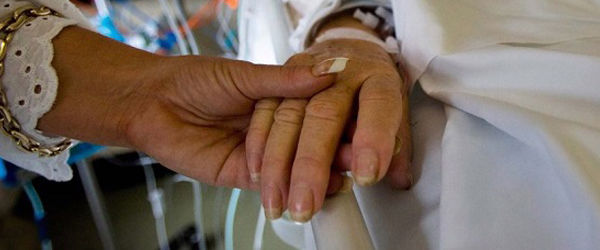Cardinal Rigali is 76, a year past the age at which a bishop is required by canon law to submit his resignations to the Vatican. A native of Los Angeles who was ordained for the L.A. Archdiocese in 1961, Cardinal Rigali has headed the Archdiocese of Philadelphia since 2003. He previously served as archbishop of St. Louis after a long career in various Vatican posts, most in diplomatic positions. He was named a cardinal in 2003.The cardinal's successor, Archbishop Chaput, is a Capuchin Franciscan who was born in Concordia, Kan., Sept. 26, 1944. A member of the Prairie Band Potawatomi Tribe, he was the first Native American to be named an archbishop when he was appointed to Denver in 1997. He became the second Native American to be made a bishop when he was named to the Diocese of Rapid City, S.D., in 1988.He held several positions in administration for the Capuchins before becoming a bishop.Archbishop Chaput holds a bachelor's degree in philosophy from St. Fidelis College in Herman, Pa., a master's degree in religious education from Capuchin College in Washington, and a master's in theology from the University of San Francisco. Among his recent writing are two books, "Render Unto Caesar," about Catholic participation in the public square, and "Living the Catholic Faith: Rediscovering the Basics." He has served on the U.S. Commission on International Religious Freedom, a federal advisory organization.Los Angeles Archbishop José Gomez, who served as a Denver auxiliary bishop under Archbishop Chaput (2001-04), said he was delighted by Pope Benedict’s selection.“Archbishop Chaput has been a great friend and mentor to me, from the time I served as his auxiliary bishop in Denver to now, in my ministry as Archbishop of Los Angeles,” Archbishop Gomez said in a statement. “The people of Philadelphia will soon discover that they have been blessed with a new shepherd who is a man of profound faith and extraordinary pastoral sensitivity. As Archbishop of Denver, Archbishop Chaput worked with missionary zeal — even making use of social media — to spread the Good News of Christ’s love to all corners of his archdiocese. He also established programs and initiatives to deepen prayer life and increase knowledge of Catholic teaching among the faithful.”Philadelphia news organizations had been speculating that Cardinal Rigali's resignation was related to public criticism of how the archdiocese has handled clergy sex abuse cases, but he had submitted his resignation after he turned 75 on April 19, 2010, as required under canon law.A scathing grand jury report released in February accused the archdiocese of failing to stop priests from sexually abusing children even after a previous report had called attention to problems. It said more than three dozen priests with allegations of sexual abuse were still in positions where they could contact children. At the grand jury's recommendation, two priests, a layman and a former archdiocesan priest were charged with criminal counts related to abuse of juveniles. Another priest was charged with endangering child welfare for his role in assigning the accused priests.In response, the Philadelphia Archdiocese among other things has hired a former sex crimes prosecutor to review personnel files of the 37 priests named in the grand jury's report. Cardinal Rigali also placed 21 priests on administrative leave while any allegations made against them are reviewed.At a July 19 news conference announcing his appointment at Philadelphia’s archdiocesan office, Archbishop Chaput said his transition to leading the Philadelphia Archdiocese was a little like joining a family and that it would take some time to become familiar and adjust to each other. "I do not know why the Holy Father sent me here," he said. "No bishop will try harder to help persons who have been hurt by the sins of the past or work harder to strengthen or encourage our priests and to win the hearts of the people." He said he needed to read the grand jury reports and spend a lot of time talking to people, including abuse victims and their families, before he could talk about how to fix the problems of the abuse cases. "It's not my problem, it's our problem ... give me some time," he said. —CNS{gallery width=100 height=100}gallery/2011/0722/chaput/{/gallery}

